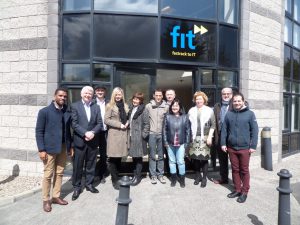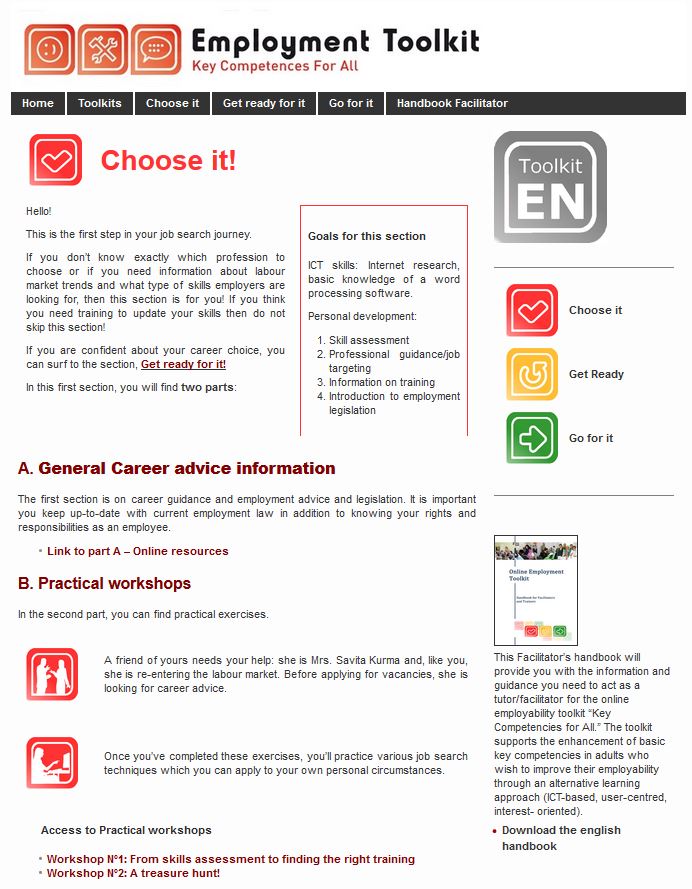28 Apr FIT4JOBS team report great preliminary results and discuss steps to a global vision
28 Apr, 2016
DUBLIN 2016
The FIT4JOBS partners’ team met in Dublin April 26-27 2016 to discuss the final position in the European Commission funded project to propagate the FIT (Ireland) training for employment model across five additional European countries. The team was built through partnerships with major private and public organisations engaged in social enterprise initiatives to reduce the Digital & Social Divide through training & support for marginalised groups. In this particular instance the training was specifically targeted at unemployed young people seeking to enter the work place with in-demand ICT skills.

All partners successfully completed their respective project and the overall results exceeded expectations. Final analysis of the overall project metrics in almost complete and it is already clear that the goal of 75% progression into jobs was met.
Although all partners worked within the FIT4JOBS model they were able to carefully examine and respond to their own local environments and issues relating to employers needs vs availability of corresponding skills. All partners’ share the common problem of an ICT skills gap; however the type of skills did vary country to country. As expected the most common overall skills shortages related to software & web development. Response rates from job seekers and the overall level of commitments from employers to hire successful students was very high.
Key messages from the experience that emphasise the unique components of the FIT4JOBS model are:
- Employer engagement, especially in specifying skills needs.
- Attention to careful selection of candidates to ensure good outcomes for all stakeholders.
- Attention to softskills training & support for candidates
Outside of the original partners, there have been approaches from other European countries and further afield to adopt the FIT4JOBS model. This fact plus the high response in the partner countries led the group to believe that FIT4JOBS initiative has the potential to become a Global phenomenon and major contributor to solving the world shortage in ICT skills. Conservative estimates include the placing of 100,000 ICT upskilled job seekers in Europe in employment by 2020.
The FIT4JOBS project represents the realisation of the FIT pledge made to the Grand Coalition for Digital Jobs, launched in 2013 by Nellie Kroes, former VP, and European Commission responsible for Digital Agenda Europe.
FIT4JOBS welcome inquiries from any interested source regarding the roll-out of the FIT4JOBS training model now or in the future. Please contact manushanratty@fit.ie or any of the FIT4JOBS partners (see www.FIT4JOBS.EU ).
Partners
All partners are members of Telecentre Europe, a member-based association representing networks and NGO’s in the field of digital skills and social inclusion and include:
Latvian Information and Communication Technology Association (LIKTA), the leading ICT professional non-governmental association promoting the development of Information Society and e-skills in Latvia.
The Lithuanian Association Asociacija „Langas į ateitį” ( Window to the Future), a non-profit initiative launched in 2002 by private companies and that provides computer literacy and Internet training to adults stimulating the growth of e-services countrywide.
The Spanish Association of Telecentre Networks (ACRT) brings together a number of entities to impulse, activate and maintain public spaces (telecentres) in order promote the Information Society and provide access to ICT to citizen.
Programa Escolhas, a Portuguese nationwide program, created in 2001 and operating under the High Commission for Migration, aiming to promote social inclusion of children and young people from vulnerable socio-economic backgrounds.
The Hellenic Professionals Informatics Society (HePIS) is a network of all ICT Professionals in Greece advocating their interests at both national and European level.
FIT Ltd (Fast Track to IT) is an Irish industry-led initiative which works in close collaboration with the (Irish) government departments and national education and training agencies, local development organisations and a host of community based organisations.
Acknowledgement

This project FIT4JOBS is supported by the European Union Programme for Employment and Social Solidarity – PROGRESS (2007-2013).This programme is implemented by the European Commission. It was established to financially support the implementation of the objectives of the European Union in the employment, social affairs and equal opportunities area, and thereby contribute to the achievement of the Europe 2020 Strategy goals in these fields. The seven-year Programme targets all stakeholders who can help shape the development of appropriate and effective employment and social legislation and policies, across the EU-27, EFTA-EEA and EU candidate and pre-candidate countries.
For more information see: http://ec.europa.eu/progress
The information contained in this publication does not necessarily reflect the position or opinion of the European Commission.







